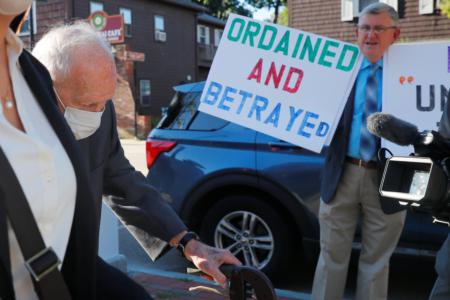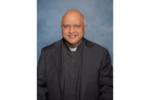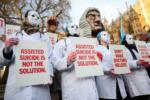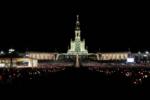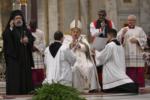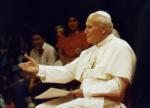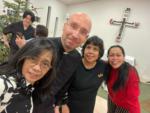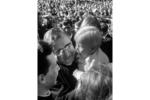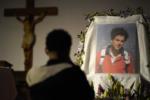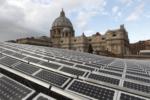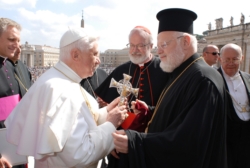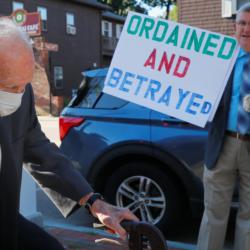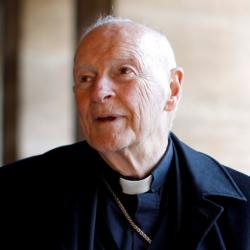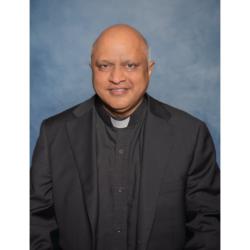Catholic-Orthodox pilgrimage arrives in Rome
ROME -- Nearly 1,000 years ago the Catholic and Orthodox churches separated. This week Boston’s Cardinal Seán P. O’Malley and Greek Orthodox Metropolitan Methodios took a small step toward healing that rift.
The two hierarchs led nearly 100 Catholic and Orthodox faithful on a 10-day ecumenical pilgrimage.
On Sept. 19 the pilgrims completed the first leg of their journey spending two packed days visiting several sacred sites in the city of Rome. On Sept. 20 the group was to move on to Istanbul -- the former Constantinople -- for two days and then on Sept. 23 spend three days in the historic city of St. Petersburg, Russia.
The large group departed from Boston Sept. 16 on three flights. After a day of travel, the pilgrims arrived at the Grand Hotel Palazzo Carpegna and spent the evening settling in.
The next morning the pilgrims awoke early for a day centered on tours of the Vatican and St. Peter’s Basilica.
The highlight of the tours for many was the seldom-seen archeological excavations of the necropolis, or city of the dead, over which the basilica was constructed. The excavation contains the remains of the original basilica constructed by the Emperor Constantine, the tomb of St. Peter as well as several bones believed to be his. Because of the delicate nature of the excavations, only several dozen visitors a day are allowed into the site.
Following the visit to St. Peter’s the group made a dash in a torrential cloud burst through the interior of Vatican City to the Vatican Museums. The pilgrims had several free hours to explore the museum at their leisure and view the many great works on display including Michelangelo’s famous Sistine Chapel.
During the afternoon, while pilgrims participated in tours, Cardinal O’Malley, Metropolitan Methodios as well as the Catholic and Orthodox clergy and ecumenical officers on the journey took part in a meeting at the Pontifical Council for Promoting Christian Unity.
According to Vito Nicastro of the archdiocese’s Office for Ecumenical and Interreligious Affairs, the Boston delegation was greeted warmly by council Secretary Bishop Brian Farrell. Bishop Farrell opened the encounter describing the origins of the pontifical council in the Second Vatican Council and how it has developed over the intervening years to fulfill its mission.
It was symbolic, Nicastro said, that hanging on the wall of the meeting room was the original icon given to Pope Paul VI by Ecumenical Patriarch Athenagoras I at their 1964 meeting in Jerusalem during which they lifted the mutual anathema between the churches. The icon depicts the brothers St. Peter and St. Andrew, the founders of the churches of Rome and Constantinople, embracing.
In Bishop Farrell’s remarks, Nicastro said, he noted that when the Catholic and Orthodox churches dialogue they must not do so as two separate churches coming together because, in reality, all are simply different parts of the one Church founded by Jesus. All dialogue between the churches must be founded on this premise otherwise it is destined to fail because it is based on a “misperception.”
After the bishop’s remarks, the Metropolitan Methodios and Cardinal O’Malley each shared with the council the experience they have had building a special relationship in Boston including the annual exchange of delegations on the feast of Sts. Peter and Paul and St. Andrew and mutual participation in Holy Week and Easter liturgies.
At the conclusion of the meeting, Bishop Farrell presented the cardinal and metropolitan with a copy of the icon of St. Peter and St. Andrew as well as a smaller copy for each of the pilgrims.
In the evening, Cardinal O’Malley celebrated Mass for the pilgrims in his titular church in Rome, St. Mary of the Victory. Among those concelebrating were Bishop Robert Hennessey and Bishop John Dooher who were in Rome participating in a Vatican program for recently ordained bishops.
In his homily, the cardinal spoke of the need for Catholic-Orthodox dialogue and the great desire to see the Church founded by Christ once again reunited.
He noted with humor, however, that the church in which the pilgrims were sitting was named for a victory of a Catholic army over Protestants in the 17th century Battle of Prague.
“Of course,” the cardinal said, “that was in the good ol’ days before ecumenism.”
The Rome portion of the pilgrimage was to conclude with the Sept. 19 general audience with Pope Benedict XVI and visits to the Greek Orthodox Church in Rome, St. Theodore, and the basilicas of St. Mary Major and St. Paul Outside the Walls.
